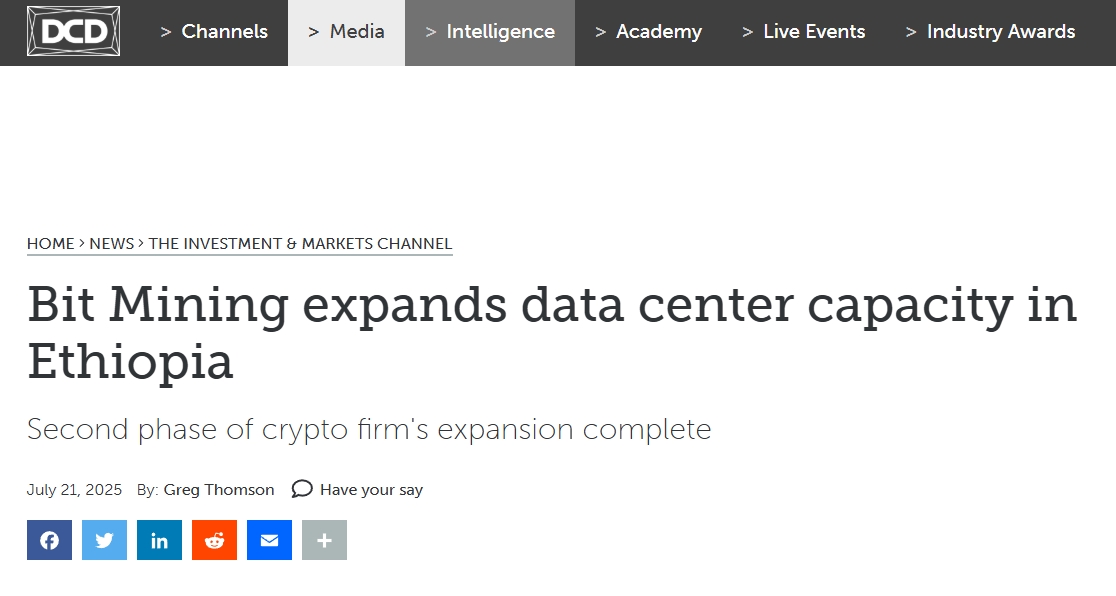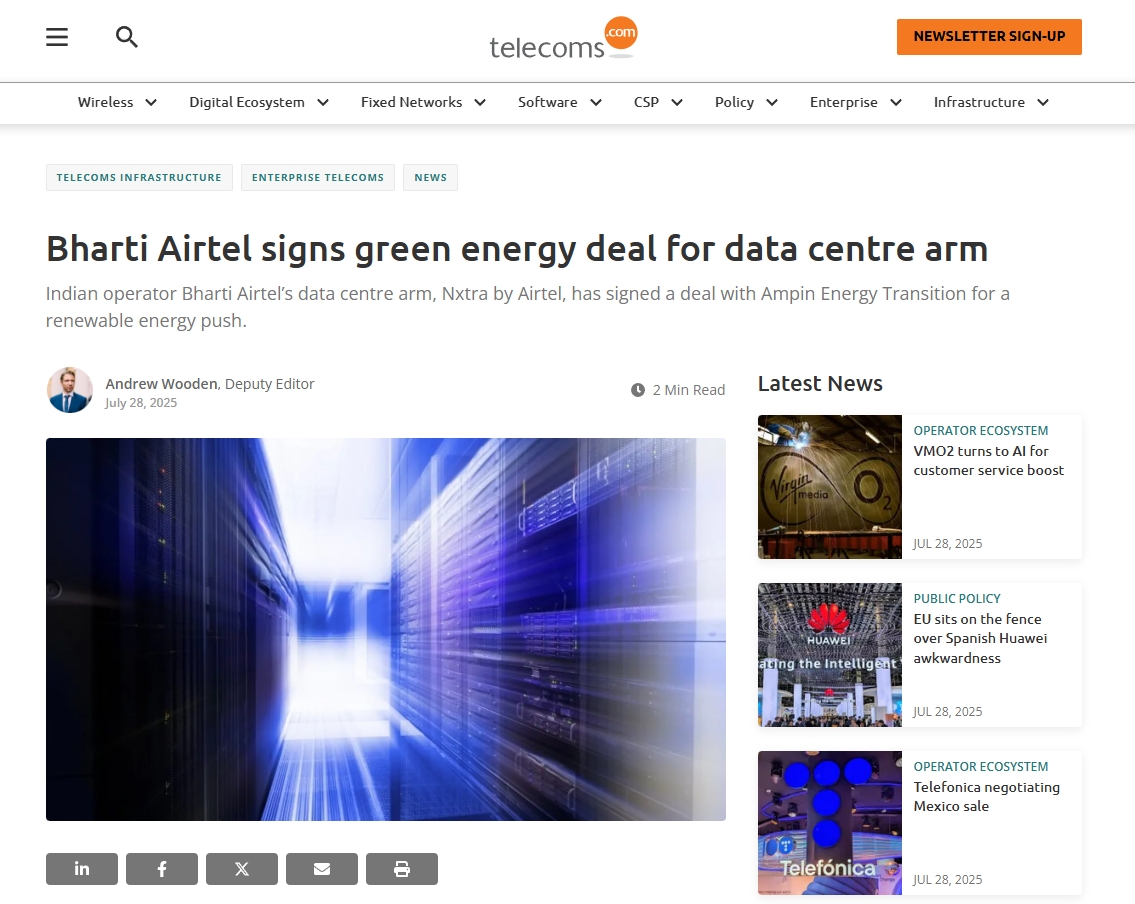Second phase of crypto firm's expansion complete
Cryptoasset technology firm Bit Mining has announced the completion of the second phase of its data center acquisition in Ethiopia.
The company announced it had entered into a definitive agreement to acquire cryptocurrency data centers in Ethiopia in December 2024, before finalising that agreement later in the same month.
Last week, Bit Mining issued an additional 45,278,600 Class A ordinary shares to fund the purchase of the remainder of the data centers, as well as the corresponding deployment of Bitcoin mining machines.
It means Bit Mining will operate data centers with a capacity of 51MW.
Following the acquisition in Ethiopia, Bit Mining CEO Xianfeng Yang noted that despite the deployment of more Bitcoin (BTC) mining machines, the company would continue to focus specifically on a different cryptocurrency entirely, Solana (SOL).
"While we continue to make progress in our crypto mining operations, we have strategically shifted our focus to actively explore opportunities within the Solana ecosystem," said Xianfeng Yang, CEO of Bit Mining.
"This move reflects our commitment to capturing broader market potential and aligning with emerging trends that can drive long-term value and growth for the Company,” added Yang.
Bit Mining recently announced a strategic shift into the Solana ecosystem. The company announced it plans to raise $200-300M to fund a company treasury of SOL tokens, and would begin to convert its existing crypto holdings into Solana tokens.
Solana is a Layer-1 blockchain which provides a base-layer infrastructure designed for low-cost, high-speed payments, and an ecosystem for a wide range of decentralized finance (DeFi) apps.
Solana could be considered in the same vein as Ethereum, which focuses on building infrastructure for DeFi applications (like games, marketplaces, NFTs, and more).
Bitcoin, on the other hand, is designed around payments, and in some cases, as a store of value. While chains like Solana and Ethereum operate on a Proof-of-Stake infrastructure, Bitcoin operates on Proof-of-Work.
Proof-of-Work chains like Bitcoin are typically more electricity-intensive, and demand specially designed mining machines. Proof-of-Stake chains typically use a fraction of the electricity deployed in Bitcoin mining.








